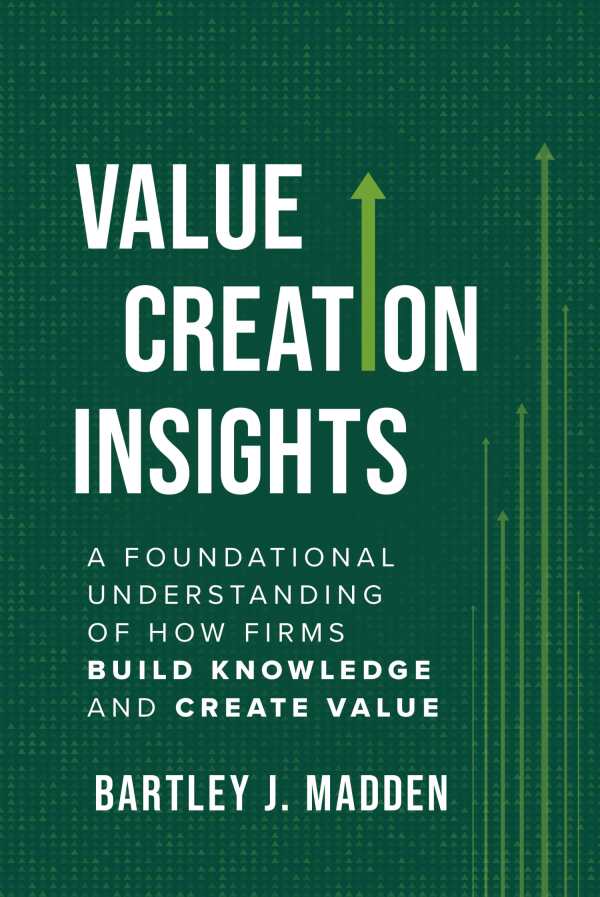Value Creation Insights
A Foundational Understanding of How Firms Build Knowledge and Create Value
The thorough entrepreneur’s guide Value Creation Insights examines the cycles by which companies amass knowledge in the name of profitability.
Investment researcher Bartley J. Madden’s analytical business book Value Creation Insights treats companies as holistic systems and shows that the methods by which they gather information, solve problems, and organize their management hierarchies matter.
With topical chapters that address organizational structures, investment research, and new economy accounting in depth, the book examines the cycles by which companies amass knowledge in the name of profitability. In doing so, it unpacks complex theories about corporate valuation and performance measurement, sorting through the involved metrics in a thorough manner, including reinvestment rates, net cash receipts, and life-cycle valuation. After its systematic, scientific survey of how companies build knowledge and then wealth, it introduces a holistic, strategic guide to corporate value creation, showing how companies process knowledge to deliver rewards.
The book uses repetition to make the dense subject matter more digestible and drive key points home, as when it states that knowledge building is the foundation of value creation, and with the assertion that that one’s worldview informs what data one considers when problem-solving. Redundancies result: The book includes a prefatory overview of the content, its final chapters reiterate its key takeaways, and each chapter includes a tidy recapitulation of its lessons and teases what’s to come.
Further, the book’s analyses are sometimes too granular, as when it dissects Adelbert Ames’s 1950s research on visual perception and objective reality—an inquiry that is more philosophical than necessary for the subject matter. Better addressed are subjects including innovation and resource allocation, which are explored with a scientific detachment. Further, on the topics of worldview and perception, insights into how language shapes people’s perceptions help to frame the book’s problem-solving techniques.
When it zooms out too much, though, the book loses focus. It jumps between topics too much as it progresses, as with a tangent to critique the US Food and Drug Administration’s regulatory systems. At such moments, it comes across more as a collection of ideas than a cohesive business guide. And the prose is sometimes stilted because of the overabundance of compound terms, distracting parenthetical remarks, and superfluous asides. Acronyms also clog its chapters at the expense of clarity.
Still, insights about organizational success do arise, as through examples from major companies that gathered market intelligence to create greater shareholder value. The book illustrates how its theories might be applied in anecdotes about companies who solved their technical issues to streamline manufacturing, and who solved their pain points for customers to facilitate sales. Building upon existing theory, it also draws on a variety of credibility-building outside resources and honors the intellectual lineage of its ideas, for instance summing up John Dewey’s philosophies and considering how the social sciences influence economic thinking.
A cerebral business book, Value Creation Insights argues that knowledge is crucial to a company’s financial performance and stock value.
Reviewed by
Joseph S. Pete
Disclosure: This article is not an endorsement, but a review. The publisher of this book provided free copies of the book and paid a small fee to have their book reviewed by a professional reviewer. Foreword Reviews and Clarion Reviews make no guarantee that the publisher will receive a positive review. Foreword Magazine, Inc. is disclosing this in accordance with the Federal Trade Commission’s 16 CFR, Part 255.

